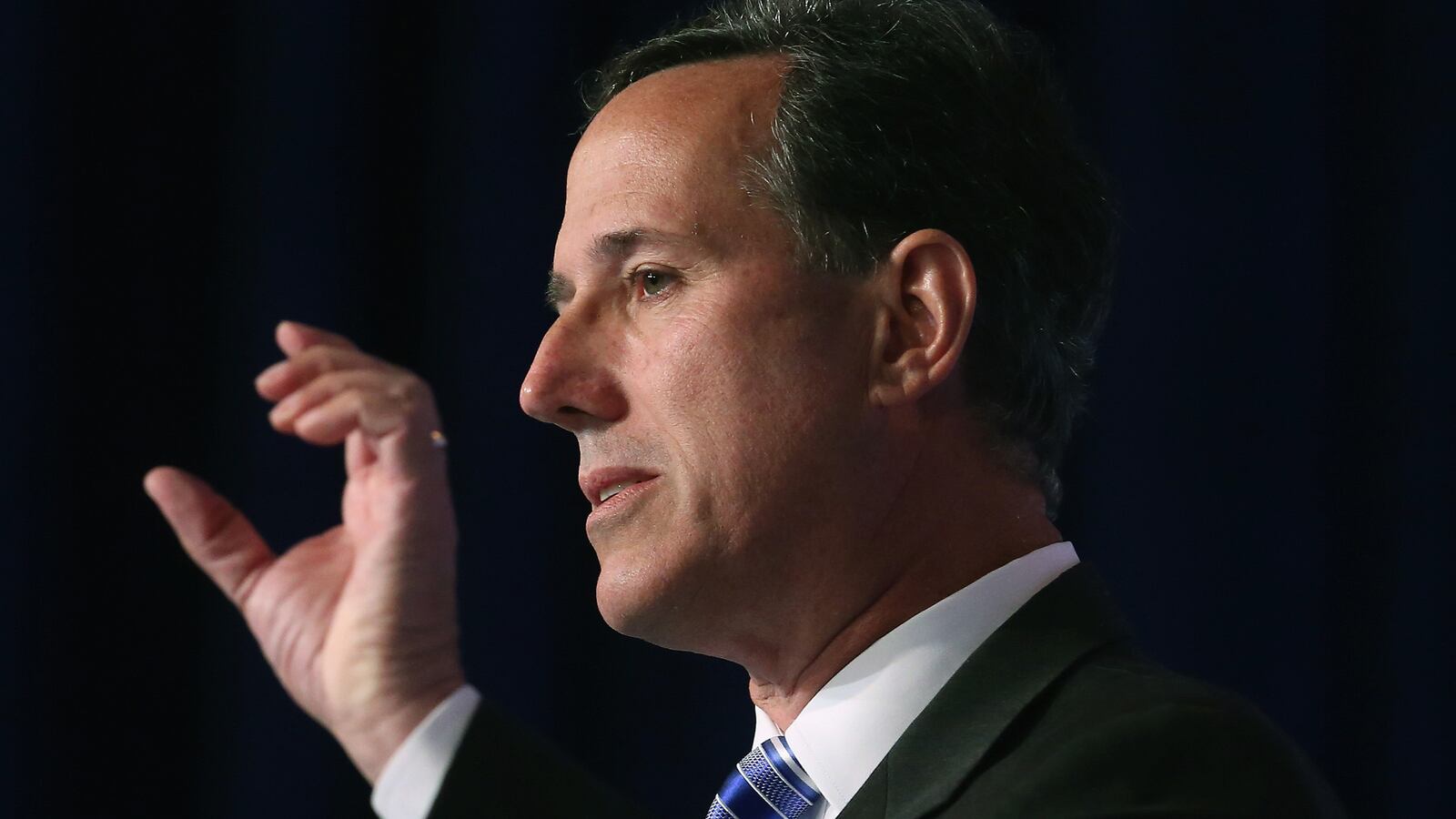To Rick Santorum, the difference between the West and the Muslim world is simple: “You don’t have any Baptist ministers going on jihad.”
As the debate rages over Western intervention in Syria, former U.S. Sen. Rick Santorum sees the conflict in the Middle East as a “clash of civilizations” that has been going on for the better part of the past 1,300 years.
In a speech at the Values Voter Summit in Washington, D.C. and a subsequent interview with The Daily Beast, Santorum described the West as engaged in an “existential fight” against “radical Islam.” The second-place finisher in the 2012 GOP presidential primary made clear to The Daily Beast that this wasn’t just a conflict between the West and the Muslim world, but was part of an internal conflict within Islam as it “danced with this tiger of modernity.” Santorum noted that Muslims were right to be hesitant about some aspects of the modern world, but there was still “a fundamental foundational problem in Islam of embracing issues of freedom of conscience and religious persecution.” In contrast, Santorum noted that while “Christendom [once] expanded by the sword, that doesn’t happen anymore.” Instead, “the Western world has come to terms with religious liberty, freedom of conscience, and that persuasion is the way to spread the faith.”
Santorum though went after President Obama for not realizing the nature of the threat, jibing in his speech that “we have a president who was in Disneyland.” Afterward, he criticized Obama for internal inconsistencies in his speech at the United Nations this week. Santorum thought Obama contradicted himself by stating that Islam is a religion of peace and then talking about “all these problems.”
In contrast, Santorum said he thought the president’s approach should be to “take on radical Islam wherever he finds it as an existential threat to our allies and to us.” He noted that in the modern world, “cyberattacks, long-range missiles, and who knows what else” can destroy America from far away.
He said he didn’t think that Obama was the only political figure getting foreign policy wrong. Santorum took an indirect shot at Kentucky Sen. Rand Paul and the libertarian wing of the GOP, saying that “the Constitution provides for limited government” and argued that this shouldn’t be confused with “small government.” To Santorum, “limited means limited to certain subject areas, but robust in those areas to protect our freedoms and keep us secure.”
Though, Santorum didn’t just talk about foreign policy. He first came to public prominence as an ardent social conservative in the 1990s and went after what he saw as the defeatist tendencies within the conservative movement and the GOP on social issues. The former Pennsylvania senator mocked those who thought “history is moving in a different way.” Instead, Santorum dismissed this, arguing “We have somebody else that we need to pay attention to when it comes to judging us, and it’s not history.”
Yet Santorum wasn’t ready to drum out members of the party who were on the other side of the divide. That’s unlike Brian Brown, the head of the National Organization for Marriage, who introduced the former senator at the event—he announced this week that his group would campaign against three pro-gay-marriage Republicans.
Santorum embraced a more pragmatic big-tent approach to these candidates. He told The Daily Beast that what was most important was getting a Republican majority in the Senate. He admitted that he was “not crazy about the positions that some of these candidates have, but, at the same time, their voting record is going to be better on other issues.”
In the meantime, Santorum urged attendees at the event to go to work and help Republicans win in 2014. In his opinion, there’s a clash going on and not just between political parties but between “world views.” And, in a struggle like that, the stakes couldn’t be higher.






